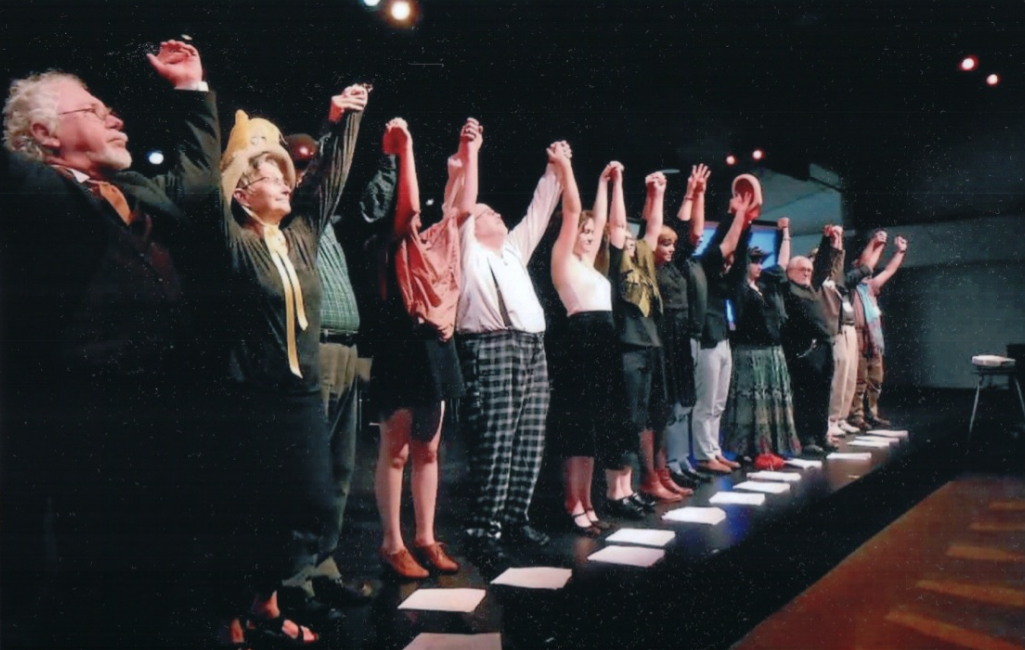“If melodrama is the quintessence of drama, farce is the quintessence of theater.
–Playwright and critic Eric Bentley
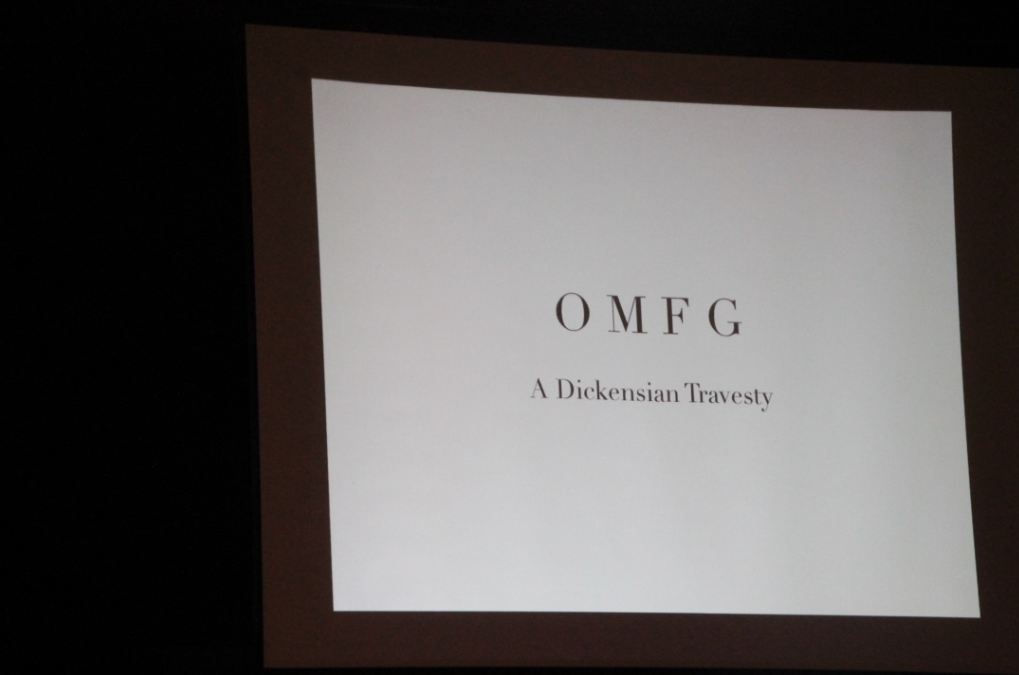
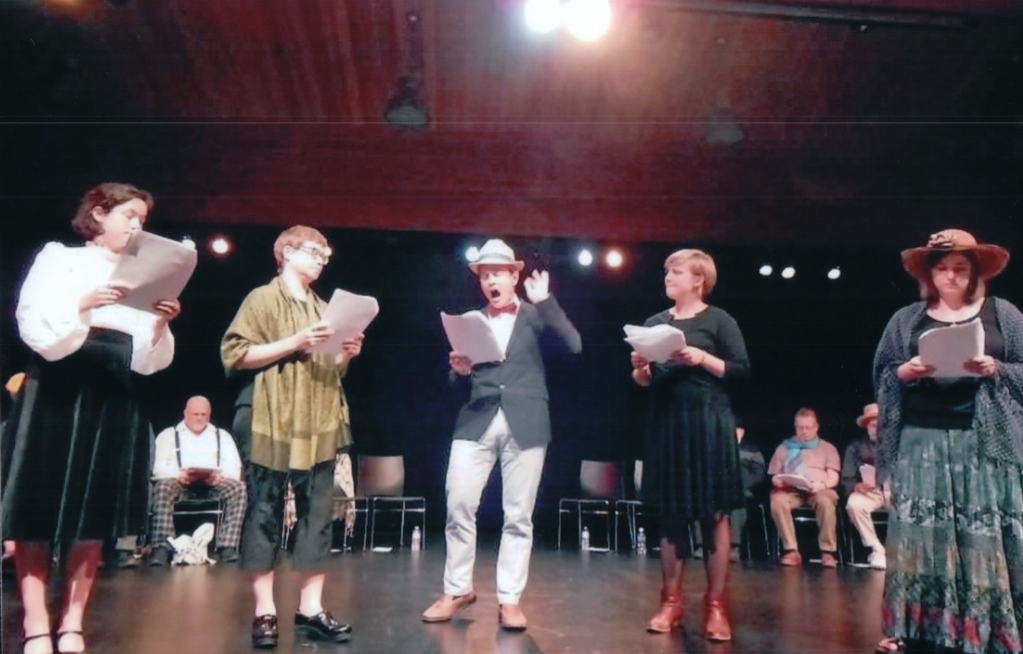
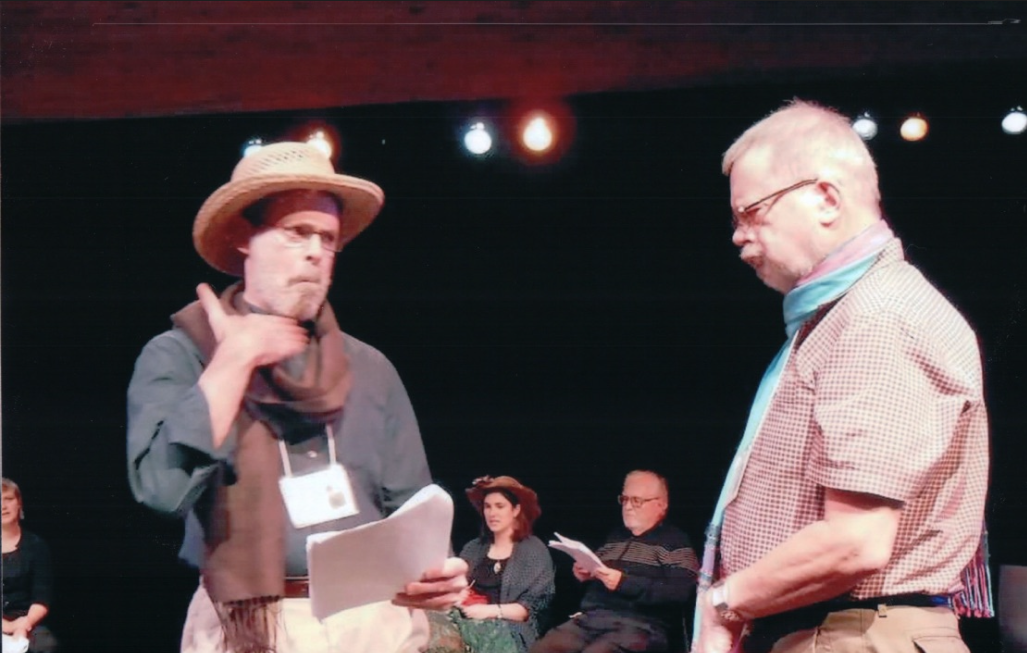
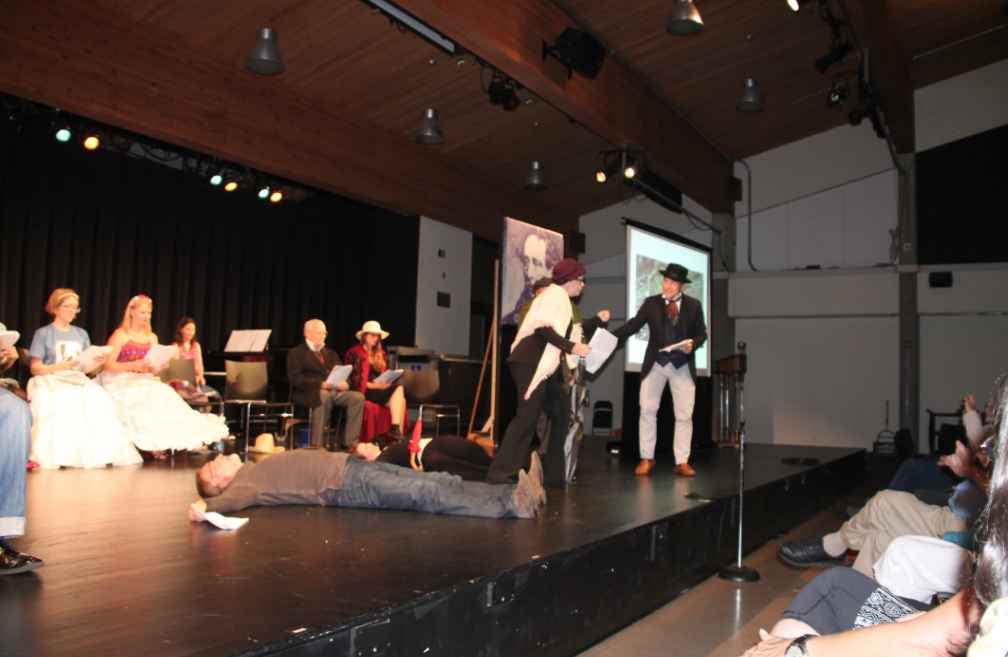
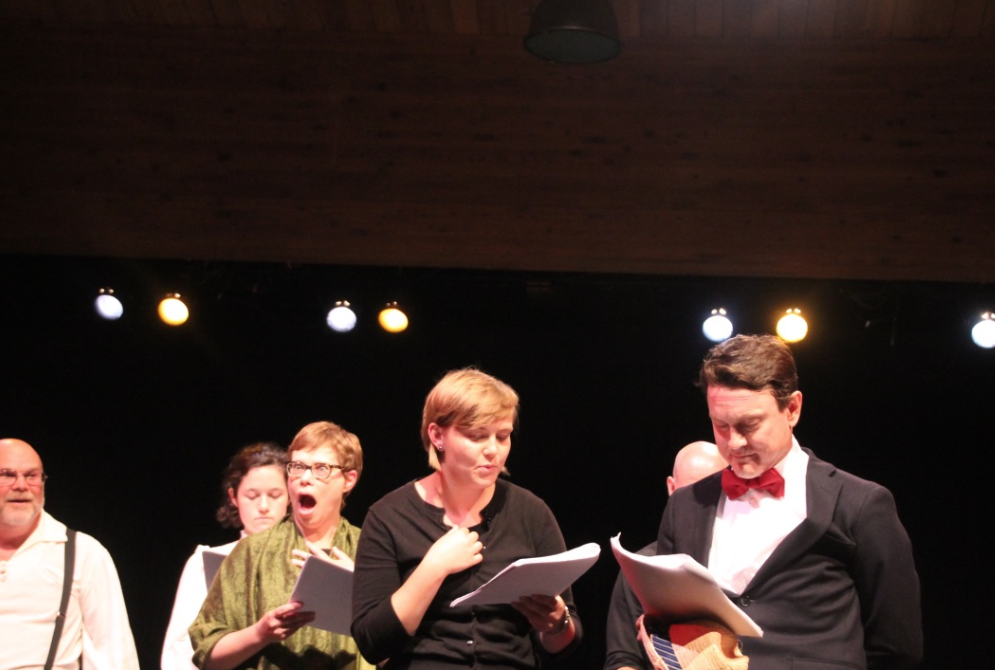
For many years, Dickens Universe attendees were treated to a theatrical performance on Thursday evenings written and staged by John Glavin. A faculty member at Georgetown, Glavin is a playwright and a Victorianist, and he melded those backgrounds to put together the week’s entertainment, always presented in the form of a farce, with casting done within the confines of Universe attendees who wished to volunteer.
Glavin retired from this venture a number of years ago because of illness in his family, and the mantle fell to Adam Abraham of the University of Miami, who first attended the Universe in 2012, after Glavin’s tenure. Abraham remembers other forms of entertainment in his first years at the Universe, such as one-woman shows by Miriam Margolyes and readings by Gerald Dickens. John Bowen, Abraham says, is the one who suggested that he revive the farce. “He was my supervisor at the University of York, where I did the MA degree in Nineteenth-Century Literature and Culture,” Abraham says. “And I suppose he had a vague idea that I had a theatre or creative-writing background. It also helped that my master’s research was on Victorian imitations of The Pickwick Papers.”
Abraham adds that he has no formal training in theater, “but I grew up on Broadway musicals and their cast albums. As an undergraduate, I was involved in theatre clubs and organizations. After performing in and producing some student shows, I directed a production of Stephen Sondheim’s A Funny Thing Happened on the Way to the Forum.” And, he says, “In my senior year, I co-wrote an original, two-act musical. We also recorded a cast album, and somewhere I have a box of unsold compact discs.”
Whatever it was that Bowen picked up on, his intuition was good. Abraham adeptly stepped into the role of farce producer in 2012, when the novel was Our Mutual Friend. “And I was proud of that first farce title: OMFG: A Dickensian Travesty,” he says. The audience loved the title—and the performance.
“I will add,” Abraham says, “that once I had agreed to take on the task, I contacted John Glavin, my predecessor. He shared two of the written scripts from previous summers. I think it was Great Expectations and Oliver Twist. From these scripts, I learned to make the farce a kind of musical, with song moments.”
But for his first production, he was nervous, and started work on the script months in advance. “I really did not know what I was doing,” he admits. “But then I went to see a Christmas pantomime in England, and I said, ‘That’s it! That’s what I’m supposed to do.’ For any American who has never seen British pantomime—there is no explaining it. Now that I feel more comfortable, I start about a month before the Dickens Universe week.”
How does he prepare, after that first time? “Basically, I do what everyone else does: I read the required book of that summer, even if I read it before,” he says. “But I read it differently. I read it looking for jokes and errors and improbabilities and musical moments. So my experience is somewhat contrary to that of all the other participants. While they may read the selected book and say, ‘Wow, this so good,’ I am looking for the pratfalls and the punchlines.” He says he now starts writing the farce in June. “I need a deadline to loom.”
Once he has the farce based on the year’s novel written, his next jobs are as casting director, stage director, and producer. Part of the magic of the farce each year is the fact that all of the performers are volunteers, and that all of the costumes, props, and the accompanying stage business evolve from what people have with them or can find on campus. Another important aspect is the willingness to participate—and the talent—that is present on campus during Universe week.
Abraham does an incredible job of putting all of this together in four days—from the announcement of the rehearsal schedule at the Sunday evening lecture to the performance of the farce on Thursday evening. He says he doesn’t make many changes to the script itself because of the time constraint, but “I do sometimes incorporate observations from the lectures that we hear. People enjoy these callbacks from earlier moments in the week.” He’ll also add to the script if there is an attendee with an unusual talent. “One year,” he said, “there was a performer named Taryn Hakala who could do any kind of English accent, so I invented a new bit for her.” And who could forget Eden Bart’s vocal solos as Madame Defarge in 2023's Tea for Two Cities, based on A Tale of Two Cities?
Universe attendees don’t have to be linguistics experts or singers to participate in the farce, though. And one aspect of theatrical production that is not a problem during the week is script memorization. “There is no memorization—I hate memorization,” Abraham says. “Everyone holds a printed script in hand. So if you’re a performer or you just want to try something different, join us!” Rehearsals are held in the afternoons.
“After days and evenings of some intense discussion and thoughtful lectures, it’s nice to let loose with something that is unabashedly silly,” Abraham says of the Thursday evening time slot. “And there is a big party directly after, which feels like the perfect piece of scheduling.” Another draw? A promise from your director: “You will never have a more enthusiastic and joyous audience than a few hundred Dickens lovers who spent a whole week talking and thinking about this writer.”
